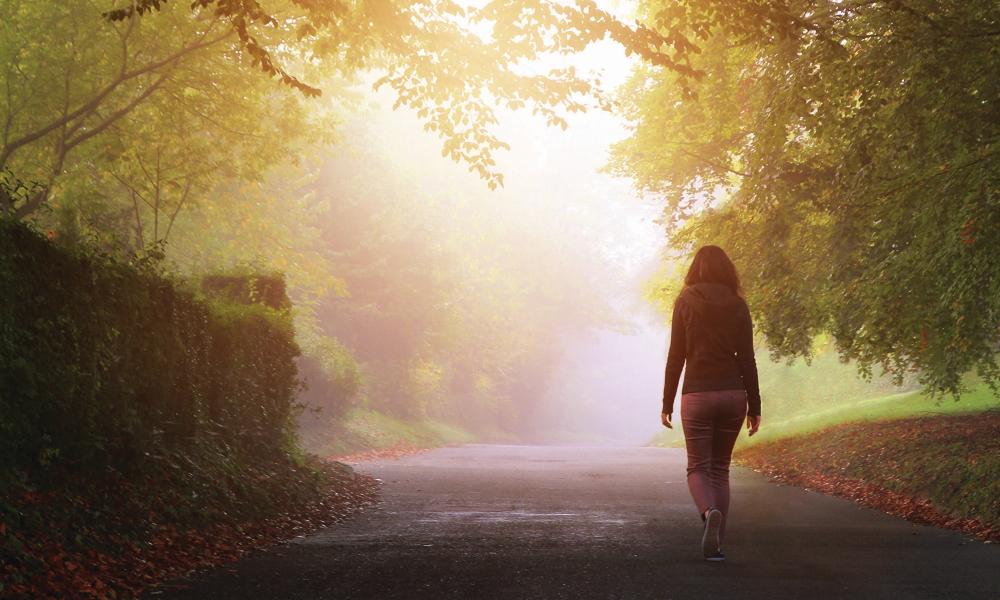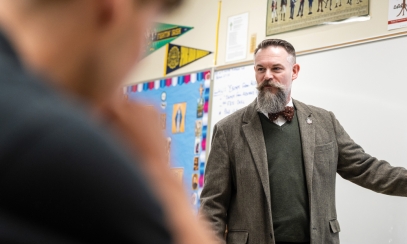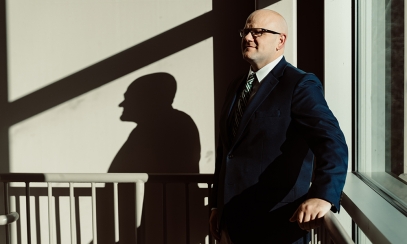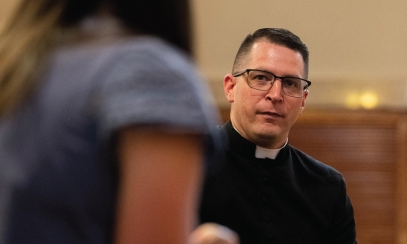
Rachel’s Vineyard
A pro-life message of healing makes an impact at the Women’s March and beyond
A pro-life message of healing makes an impact at the Women’s March and beyond
The Women’s March may seem like an odd starting place for an article about a pro-life ministry. However, this is where the story begins. Julie Olson, Rachel’s Vineyard coordinator for the Spokane area, said, “I ended up at the Women’s March in Spokane because of the Spokesman-Review’s pairing of Catholic Charities and Planned Parenthood in the newspaper [article] on the upcoming march. I had my phone blow up with strong Catholics saying they shouldn’t be doing this — Catholic Charities pairing with Planned Parenthood.”
Many local pro-lifers were shocked that Catholic Charities would be at the Women’s March; to be sure, Catholic Charities also had a booth at the Walk for Life NW that year. So, when Julie called Scott Cooper at Catholic Charities to ask about the story in the Spokesman-Review, he was, according to Julie, understandably apprehensive. Julie said she has a good relationship with Cooper and he volunteered that Catholic Charities was invited because of the services they offer to women. Julie took a risk and asked if Rachel’s Vineyard could have a seat at Catholic Charities’ table. Scott said he would call back with an answer. Later that day, Julie received the call: “You can have half the table.”
“I was like, ‘Oh my gosh … awesome,’ until the morning of the march,” Julie said. “When I arrived at the table, the Catholic Charities gal gave me half of the table, and I was right on the end so everyone who came into the building saw me first,” she explained. “I was nervous.”
As the doors opened, marchers came into the Spokane Convention Center. A woman in her 70s with brightly colored hair poking out from under her beanie hat approached the table. According to Julie, the older woman asked what Julie was doing at the march. Julie said, “We are a non-political, post-abortion healing ministry in Spokane.” The woman immediately shared, “I had an abortion.”
“Oh wow, how long ago?” Julie replied. After hearing the year the woman had the abortion, Julie said: “So you have a 29-year-old. She looked at me and said, ‘Oh gosh, I have a 29-year-old!’ as tears started streaming down her face. So, I asked if I could give her a hug. She said, ‘I would like that very much’; and as I hugged her, she said, ‘I was told it was tissue … I was told it was tissue until I aborted and then they told me it was a boy. And I just had to pick up and move on.’”
Julie encouraged the woman to attend the retreat.
The choice to have an abortion is never a choice the Catholic Church approves of, but the choice to have an abortion never leaves a person beyond God’s loving desire to heal their wounds. From this starting place, Rachel’s Vineyard seeks to serve women who are post-abortive and anyone else who is grieving an aborted child, sibling, or grandchild.
Rachel’s Vineyard grew out of support groups for other issues when a support group leader, Theresa Burke, realized that an issue for many women in the group was unprocessed grief from an abortion. This led Burke to explore the idea of helping women who had experienced an abortion. In the 1980s, Burke traveled to Medjugorje* (a town in Bosnia and Herzegovina where there have allegedly been visions of the Virgin Mary) and asked those there what she should do for the Church. The visionaries told her the Blessed Mother wanted her to “help those who have aborted their children.”
According to the Rachel’s Vineyard website, the program of post-abortion healing was adapted into a weekend retreat in 1995. “Without a budget, office or advertising, Rachel’s Vineyard became a grassroots, national outreach. By word of mouth only, the retreats began to spread across the country because of the retreats' dramatic effectiveness, from 18 retreats in 1999 and growing to 35 retreats in 2000.”
Rachel’s Vineyard now hosts more than 1,000 retreats per year. In Spokane, the retreat is offered in October as a specifically Catholic retreat; a non-denominational version is offered in April. During the retreat weekend, the attendees, mostly women but some men, process their grief and work to transition towards hope. A licensed therapist attends each weekend, as do members of the clergy, to offer support for the retreatants.
One message that many women learn who attend the retreat is how much they have been affected by their abortion, starting with triggers that will call up the memory of the time of year or even the anniversary, which can impact their life. Julie pointed out that the anniversaries of abortions affect many women who have had them.
The retreat itself, in the end, is about compassion and healing. “We establish that no one is condemning anyone here,” Julie said. The retreatants carry a symbol of their grief, anger, resentment or whatever may have a hold on them throughout the weekend. When they are ready to set that symbol down, they lay it at the foot of a crucifix. The weekend offers the retreatants a non-judgmental, non-political environment to process the choice for abortion and its effect on their life and to turn to Christ for healing and hope.
*Međugorje, the site of alleged apparitions of the Blessed Virgin Mary, has not been officially sanctioned by the local Church in Bosnia and Herzegovina or the Vatican.



